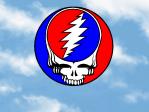April 27. 2005

There is no more irrelevant form of media than commercial radio. The AM dials have long ago been taken over by wingnut performers disguised as political commentators, and a half-dozen corporations, which get their programming lists from focus groups, control the FM dial. Essentially, that leaves us with public radio. Part of the problem, of course is the sad state of popular music at this moment, and the scandal of rap and hip-hop, which aren’t music. What’s left of the audience is escaping to iPods or free-form satellite radio, which allow you to do your own programming—commercial free.
A San Francisco radio station is starting an experiment that could revolutionize radio. It is adopting its audience’s iPods as its programmer, in a form of communication called "podcasting." [Note the birth of a new word, derived from Apple’s ubiquitous and magical devices]. No one knows if it will work, but what have they got to lose?
According to Wired.com, Infinity Broadcasting, one of those aforementioned corporations (183 stations, one as boring as the next) is switching it’s KYCY-AM to listener-submitted content. Just what that content will be is a mystery to everyone, including, one supposes, Infinity. The new call letters will be KYOURadio. Transmission will be by podcasting.
A podcast is anything collected on an iPod or another MP-3 player that is then transmitted, usually via the Internet, to someone else’s iPod. The content can be anything from music to discussions to the sound of crashing waves. They are the latest new thing. What Infinity is proposing is that its listeners send their podcasts to the station by its website, and if the podcasts are interesting and don’t violate FCC rules (keep in mind, this is San Francisco so the standards are bit different) they’ll play them—whatever they are. If the podcasts include copyrighted music (like the stuff you downloaded from iTunes), the station will pay the fees. It’s not clear what they expect to come in, and what the station will sound like, although there will be commercials. This is commercial radio, after all. Many of the submissions could be bands and musicians who cannot break into the business, and this may be their best way to get heard, just as it was when FM radio was in its glory days in the 60s and 70s—before corporations like Infinity screwed it up.
“I’m excited,” said Infinity vice president Joel Hollander. “We’re creating a new way to let a lot of people participate personally in radio—sharing their feelings on music, news, politics, whatever matters to them. I also think this is going to be a really interesting way to develop new talent.” Again, this being San Francisco, it is not likely to be dull. It has to be better than phone-in radio.
It’s another case of the Internet giving power to the people in ways no one anticipated—like blogging, actually.
According to Robert MacMillan in the Washington Post, this podcasting experiment is part of a move by station owners to get relevant again. Stations are adopting a programming format called Jack, which permits a random kind of music list, something like what you get from the Party Shuffle mode on the iPod. The result is one song coming right after another in an unstructured manner that would drive the programming chiefs of most radio stations to apoplexy. The origin of this programming apparently was a station called BOB-FM in Winnepeg, Manitoba, which begs the question why it is not called BOB. [It's actually named for an east coast DJ] A station in Denver was the first U.S. station to play JACK or BOB, and a half dozen others have followed. On May 5, it struck here in Baltimore, when WQSR became JACK-102, fired all its hands, and suddenly went freeform. They have a play list of about 1,200, instead of the usual 400, which will hardly impress an iPod owner.
Over at Forbes.com, Sam Whitmore reports a Pew study showing that 22 million Americans own MP-3 players (presumably, mostly iPods), a number he thinks is too high, but I don't. Apple sold 5 million in the last quarter. And podcasting is becoming as ubiquitous. Paris Hilton [if you are expecting a link, forget it] will podcast to promote her movie; the SciFi channel runs podcasters by the executive producer of Battlestar Galactica to comment on each episode; former vice presidential candidate John Edwards is keeping in the public eye with his own podcasts, and record companies are tying to figure out how to handle the legalities of podcasting, an entirely new legal conundrum, with the Grateful Dead and all the free music being a particular chore.
The key quote: “Madison Avenue realizes there is an entire generation out there that doesn’t listen to the radio.” Actually, more than one.
Poynter blog
No comments:
Post a Comment